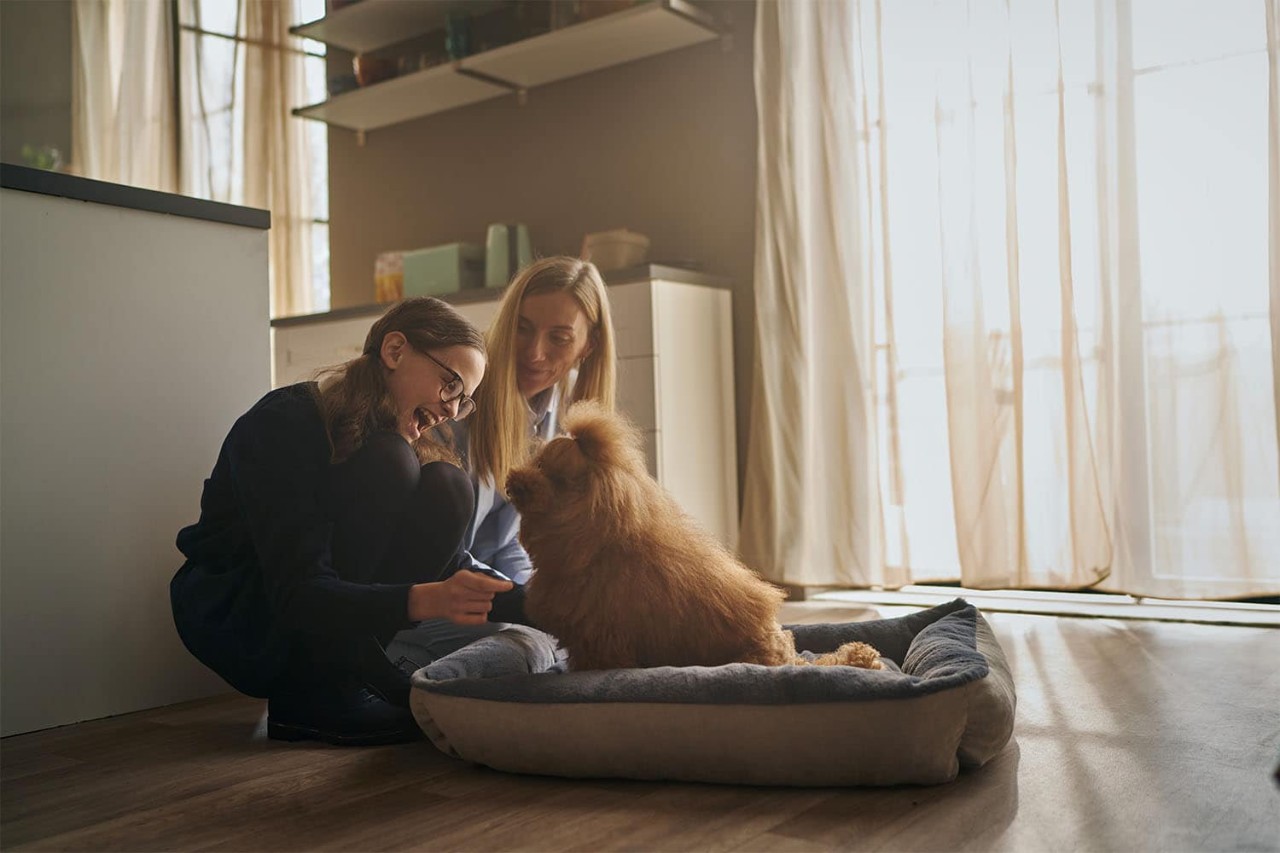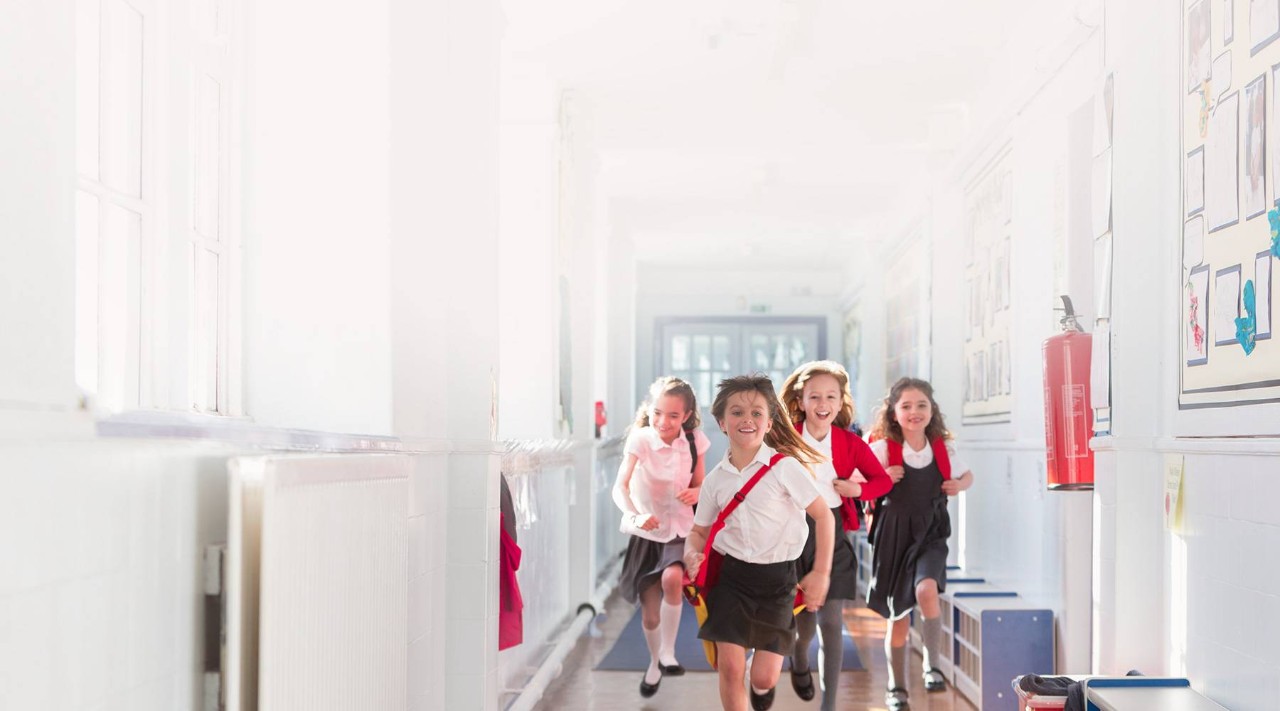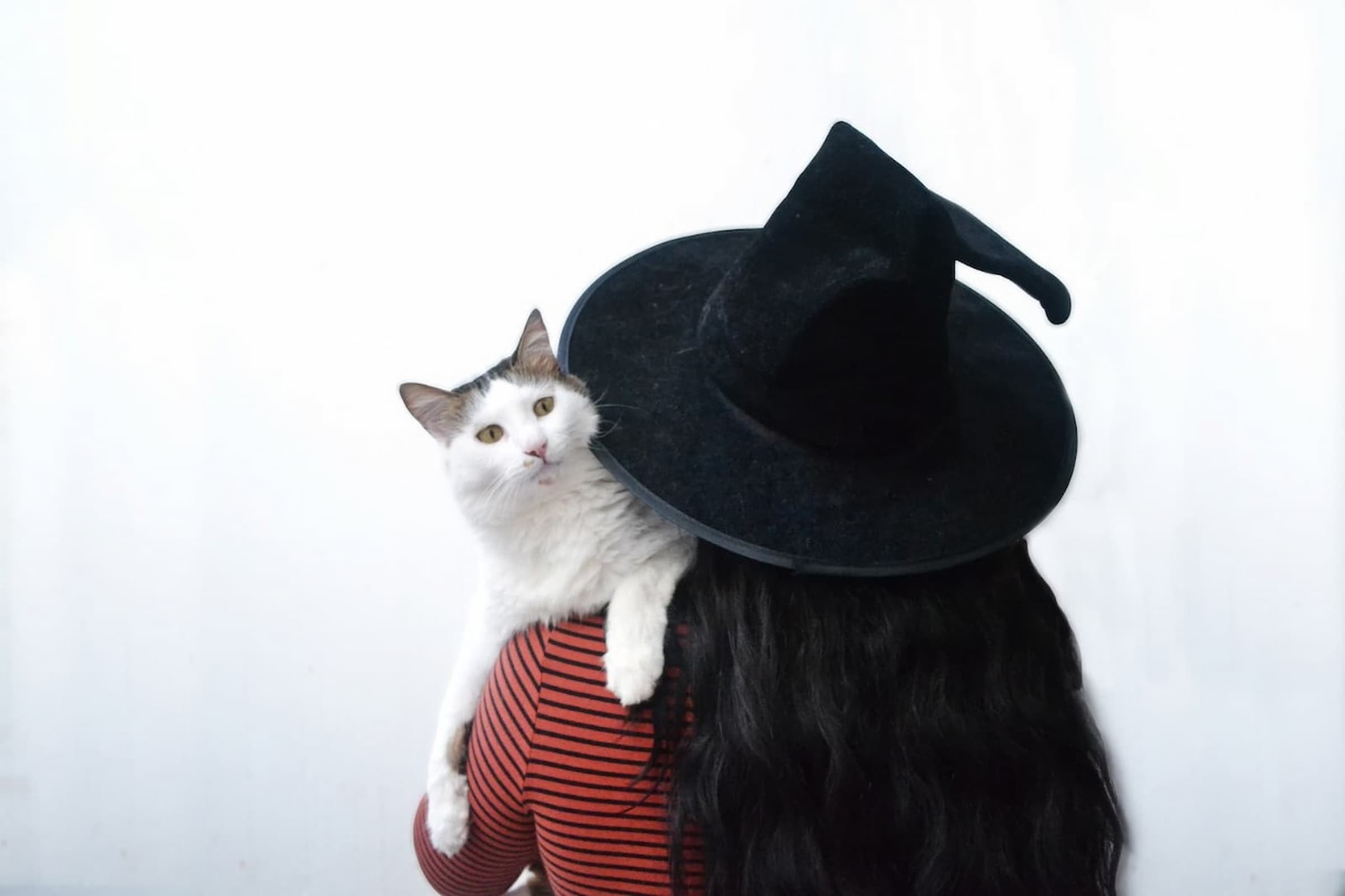Keeping your pets safe and secure this Halloween
by Angela Hickey | 3 min read October 5th, 2021
As the dark evenings draw in and Halloween approaches we need to think of how to keep our pets safe. Halloween can be an exciting time for us humans but what about our pets?
Halloween can be a traumatic and alarming time for them. Often pets go missing, get very stressed or suffer injuries. It is important to think ahead and do everything we can to keep pets as safe and secure as we can this Halloween.
Problem areas to consider:
Some pets are very sensitive to the noise of fireworks and to flashing lights in the sky. Dogs have a much higher frequency of hearing than we do and no way of making sense of what is happening. Anything unpredictable in their environment will alert their ‘fight or flight’ response, priming them to run and hide for safety or be aggressive to protect themselves. If neither of these options is available they may freeze and become traumatised and sensitised to that stimulus in the future.
In spite of COVID-19, there may be callers at your door looking for treats. Your own or your neighbour’s children may be dressing up in Halloween costumes and masks, playing, and sharing treats. This might cause your dog to get over excited and anxious.
Animals are often victims of pranksters at this time of year, with animal charities reporting many injuries to pets and missing pets.
Chewing on Halloween decorations, electric wires and nuts in hard shells may cause illness and injury.
Lighted candles in the home may be knocked over by lively puppies or curious cats.
Treats containing chocolate and xylitol are toxic for pets and if eaten may result in an urgent visit to your vet.
How to protect your pet:
Keep all animals well away from fireworks, bonfires and any callers at your door on Halloween night.
Walk dogs during the day, while children are at school and there is less risk of bangers going off. Keep them securely on a lead in case a sudden sound scares them and they bolt away from you.
Make sure your pets are microchipped and have your phone number on their collars so that you can trace them if they do go missing.
Desensitise dogs with noise phobias by playing firework sounds at a low volume to gradually get them used to the sounds. This will need to be done well in advance of Halloween.
Other ways to calm anxious dogs includes using pheromone diffusers or collars to soothe them. Calming remedies and food additives can be given for weeks in advance and up to a week after Halloween.
Your vet may advise tranquillising medication if your pet is very distressed.
Keep your pets safe indoors with you and close all windows, cat flaps etc. Keep curtains closed to muffle sounds and block flashing lights.
Keep smaller pets like rabbits and guinea pigs caged and safely secured in an outbuilding or in the house, safe from the sight and sound of fireworks. Horses need to be securely stabled.
Never leave your pet unsupervised with your own small children, and keep them separate from any visiting children.
Provide a den for anxious dogs in a quiet room and give them a stuffed Kong or chewy treat to keep them occupied and relaxed. Stay calm and confident in handling your pet so that they can be reassured by your lack of anxiety. Play with them when they are calm and sit in the same room with them as much as you can.
Brain teaser games engage your pet’s cognitive brain and take them out of ‘fight or flight’ mode. Reward only calm behaviour with a treat or petting. If you have to leave them alone for a while leave classical music on to soothe them and help block other noises.
Make sure your pet is securely closed into a room before you answer any calls at your front door on Halloween night.
Keep sweets, along with their wrappings, away from your pets especially those containing chocolate and xylitol which are toxic.
Keep Halloween decorations and toys well out of reach of playful puppies or curious cats.
Avoid access to lit candles as wagging tails can knock them over and curious kittens may singe their whiskers.
Take the above steps to care for your pet so that you and they may have a happy and safe Halloween!








